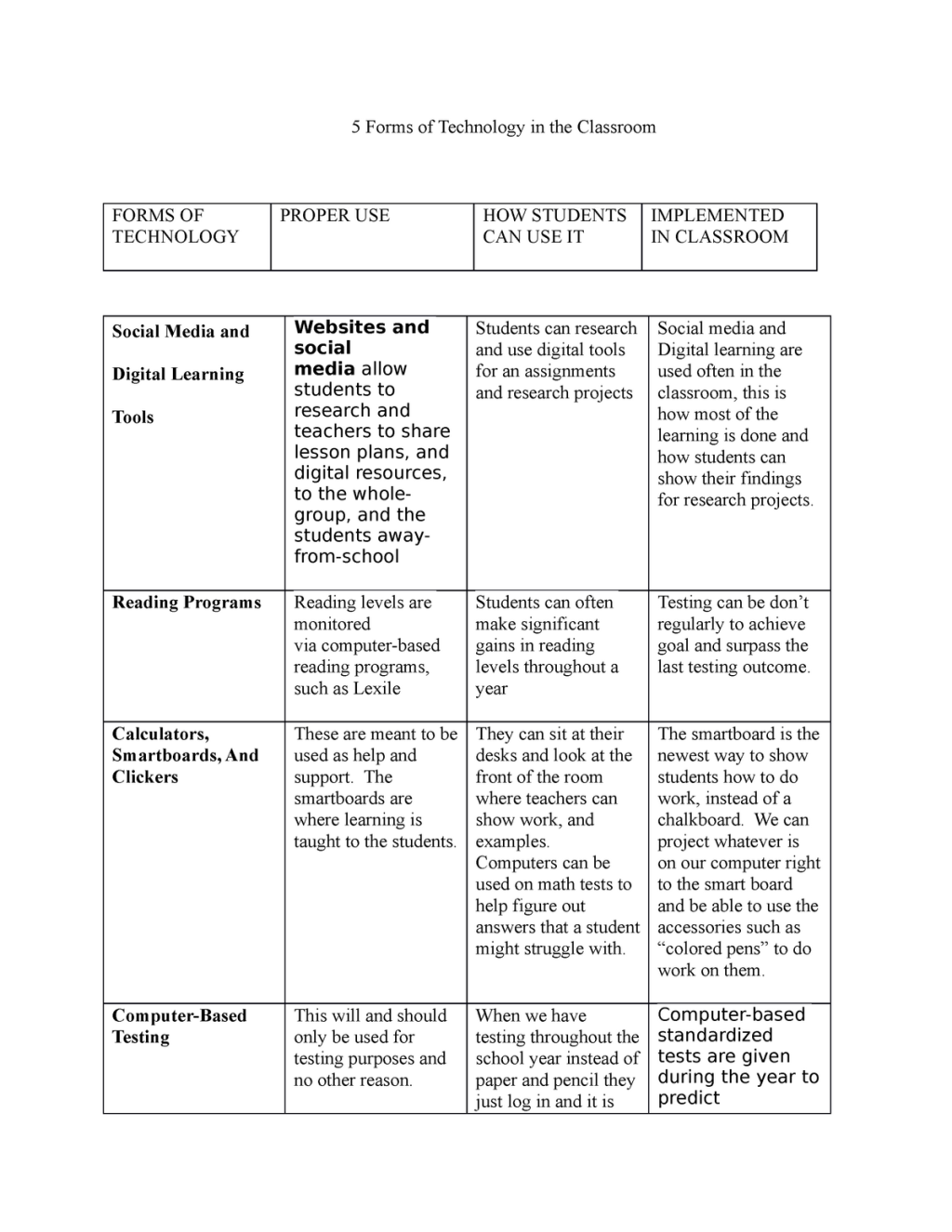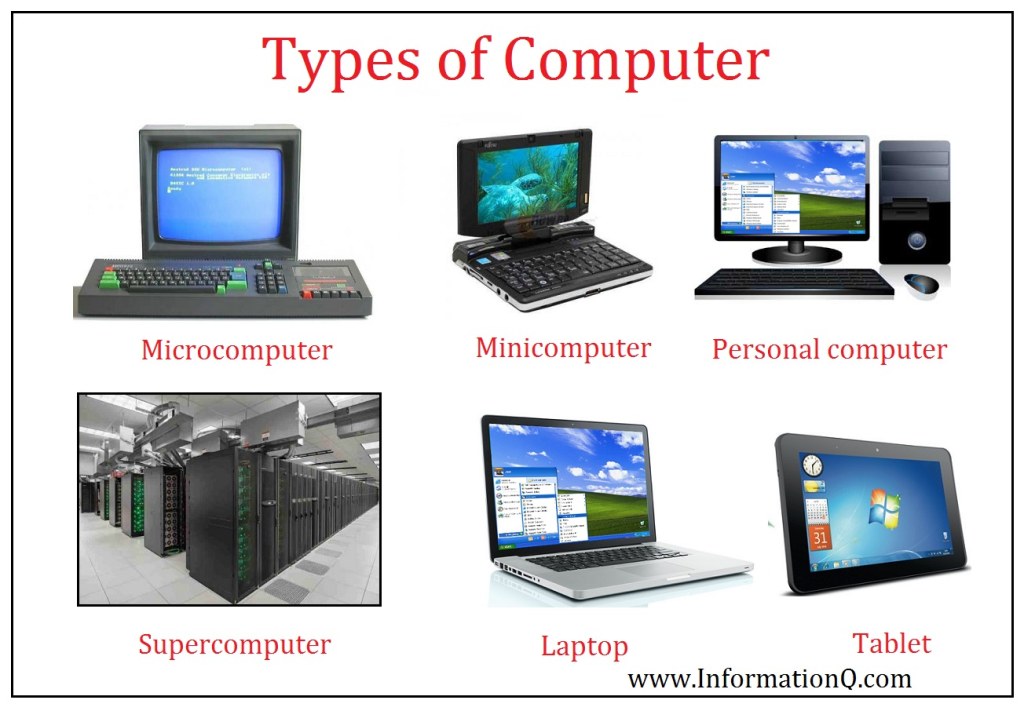Unveiling The 5 Formidable Forms Of Technology: Unlock The Future Now!
5 Forms of Technology: Advancements that Shape Our World
Greetings, Readers! In today’s digital era, technology plays a crucial role in shaping every aspect of our lives. From communication to transportation, it has revolutionized the way we live and work. In this article, we will explore the five most significant forms of technology that have transformed society. So, let’s dive in and discover the wonders of modern innovation!
1. Artificial Intelligence (AI) 📱
3 Picture Gallery: Unveiling The 5 Formidable Forms Of Technology: Unlock The Future Now!



Artificial Intelligence, often referred to as AI, is a branch of computer science that focuses on creating intelligent machines capable of simulating human intelligence. These machines can learn, reason, and make decisions, making them invaluable in various industries. AI technology enables computers to perform tasks that typically require human intelligence, such as speech recognition, problem-solving, and data analysis.
2. Internet of Things (IoT) 🔄
The Internet of Things, or IoT, is a network of interconnected physical devices embedded with sensors, software, and connectivity that enables them to exchange data. This technology allows everyday objects, such as household appliances, vehicles, and wearable devices, to connect and communicate with each other. The IoT has the potential to revolutionize numerous industries, including healthcare, transportation, and agriculture.
3. Virtual Reality (VR) 💻

Image Source: cloudfront.net
Virtual Reality is a technology that creates a simulated environment using computer-generated visuals and sounds. By immersing users in a virtual world, VR technology enables them to experience and interact with environments that may be too dangerous, expensive, or impractical in real life. VR has applications in gaming, education, training simulations, and even therapy.
4. Blockchain 🔑
Blockchain is a decentralized, distributed ledger technology that records transactions across multiple computers. It ensures transparency, security, and immutability, making it an ideal solution for various industries, particularly finance and supply chain management. Blockchain technology eliminates the need for intermediaries, reduces costs, and enhances data integrity.
5. Augmented Reality (AR) 👽

Image Source: informationq.com
Augmented Reality blends virtual elements with the real world, enhancing the user’s perception and interaction with their surroundings. AR technology overlays digital information, such as 3D models or text, onto the physical environment in real-time. It has applications in gaming, marketing, navigation, and education, making it an exciting and rapidly developing field.
What, Who, When, Where, Why, and How: Unveiling the Secrets Behind These Technologies
1. What is Artificial Intelligence?
Artificial Intelligence refers to the development of computer systems that can perform tasks that typically require human intelligence. These tasks include speech recognition, problem-solving, learning, and decision-making. AI technology has the potential to revolutionize industries and improve efficiency in various sectors.
2. Who Uses Artificial Intelligence?
Artificial Intelligence is utilized by a wide range of industries, including healthcare, finance, transportation, and manufacturing. It is also employed in everyday applications, such as virtual assistants and smart home devices, making our lives more convenient and efficient.
3. When Was Artificial Intelligence Developed?

Image Source: techquintal.com
The concept of Artificial Intelligence was first introduced in the 1950s. Since then, significant advancements have been made, leading to the development of various AI technologies and applications that we see today.
4. Where is Artificial Intelligence Used?
Artificial Intelligence is used globally in various sectors, including healthcare, finance, entertainment, and transportation. It is employed in hospitals to analyze medical data, in financial institutions for fraud detection, and in autonomous vehicles for navigation and decision-making.
5. Why is Artificial Intelligence Important?
Artificial Intelligence has the potential to solve complex problems, improve efficiency, and enhance decision-making processes. It enables machines to perform tasks that require human intelligence more accurately and at a faster pace, leading to increased productivity and innovation.
6. How Does Artificial Intelligence Work?
Artificial Intelligence works by utilizing algorithms and data to enable machines to learn from experience, recognize patterns, and make decisions. Machine Learning and Deep Learning are two popular AI techniques that allow computers to train on vast amounts of data and improve their performance over time.
Advantages and Disadvantages of These Technologies
1. Artificial Intelligence
Advantages: AI technology can automate repetitive tasks, enhance productivity, and improve decision-making processes. It has the potential to revolutionize industries and transform the way we work and live.
Disadvantages: Concerns regarding job displacement, ethical considerations, and potential misuse of AI technology have been raised. Safeguards and regulations are necessary to ensure responsible and ethical use of AI.
2. Internet of Things
Advantages: The IoT enables seamless connectivity and data exchange between devices, leading to improved efficiency and convenience. It has the potential to enhance various sectors, such as healthcare, transportation, and agriculture.
Disadvantages: Security and privacy concerns arise with the increased connectivity of devices. Protecting sensitive data and ensuring the security of IoT networks are crucial challenges that need to be addressed.
3. Virtual Reality
Advantages: VR technology provides immersive experiences and allows users to explore virtual worlds. It has applications in entertainment, education, and training simulations, enhancing learning and creativity.
Disadvantages: The high cost of VR devices and the potential for motion sickness are some drawbacks associated with this technology. Additionally, its extensive use may lead to social isolation and addiction.
4. Blockchain
Advantages: Blockchain technology offers transparency, security, and immutability, making it an ideal solution for industries such as finance and supply chain management. It reduces the need for intermediaries and enhances data integrity.
Disadvantages: Scalability issues and the energy-intensive nature of blockchain networks are challenges that need to be overcome. Additionally, the lack of standardized regulations poses concerns for its widespread adoption.
5. Augmented Reality
Advantages: AR technology enhances users’ perception and interaction with their surroundings, offering exciting and immersive experiences. It has applications in gaming, marketing, navigation, and education.
Disadvantages: Limited hardware capabilities, such as battery life and processing power, can hinder the widespread adoption of AR. Additionally, concerns regarding privacy and security need to be addressed.
Frequently Asked Questions (FAQs)
1. How can Artificial Intelligence benefit businesses?
Artificial Intelligence can benefit businesses by automating repetitive tasks, improving decision-making processes, and enhancing customer service. It can also analyze large amounts of data to uncover valuable insights and trends.
2. What are the potential risks associated with the Internet of Things?
The Internet of Things introduces security and privacy risks, as interconnected devices can be vulnerable to cyber-attacks. Additionally, the collection of massive amounts of personal data raises concerns about data protection and privacy.
3. How does Virtual Reality impact education?
Virtual Reality in education offers immersive and interactive learning experiences, allowing students to explore realistic simulations and engage in hands-on activities. It can enhance understanding and retention of complex subjects.
4. How does Blockchain improve supply chain management?
Blockchain improves supply chain management by providing a transparent and secure platform for tracking and verifying transactions. It allows businesses to trace the origin of products, reduce fraud, and streamline processes.
5. What are the potential applications of Augmented Reality in marketing?
Augmented Reality in marketing can enhance customer engagement by overlaying digital content onto physical products or environments. It allows customers to visualize products before purchasing and offers interactive experiences.
In Conclusion: Embrace the Wonders of Technology
In conclusion, the five forms of technology discussed in this article have revolutionized various industries and continue to shape our world. From Artificial Intelligence to Augmented Reality, these innovations offer immense potential and countless opportunities. It is essential for individuals and businesses to embrace these advancements, adapt to the changing landscape, and harness the power of technology to drive progress and innovation.
Final Remarks
Disclaimer: The information provided in this article is for educational and informational purposes only. The views and opinions expressed in this article are solely those of the author and do not constitute legal, financial, or professional advice. Readers are advised to do their own research and consult with relevant professionals before making any decisions.
This post topic: Technology Tutorials

